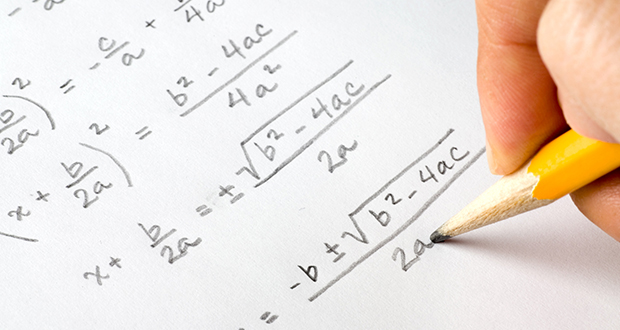The ability of Australian students to problem-solve in maths classes has been identified as integral in improving the ability levels of current Australian maths students, a challenge that has simultaneously beguiled and confused some educators for far too long.
After being briefed on how the proposed changes could affect how maths will ‘look’ and be taught in the future, a range of leading maths and science groups in the country have called for "problem-solving to be central to how maths is taught ahead of the public release of the draft new national curriculum at the end of the month,” the Sydney Morning Herald reported.
In a joint statement titled “why maths must change”, the various groups made clear that teaching maths content was “no longer enough”.
Another stated: “It is not enough to have knowledge – they must have the skills to take that knowledge and apply it to solve unknown problems, and do it.
“The abilities to problem-solve, mathematise, hypothesise, model are all skills that add worth to acquired knowledge. Mathematics learning cannot sit in silos that focus on content and procedures.”
Australia’s top-ten representative bodies, including the Australian Association of Mathematics Teachers, (AAMT), the Australian Mathematical Sciences Institute (AMSI), the Australian Academy of Science (AAS), and the Mathematics Education Research Group of Australasia (MERGOA) were all signatories to the changes.
As the Sydney Morning Herald reports, the various groups believe sensible, robust and context-dependent practices are needed quickly, particularly when trying to address Australia’s decline in the Programme for International Student Assessment (PISA), which tests 15-year-olds in reading, maths and science across more than 70 countries every three years. The rate for Aboriginal students in remote parts of Australia is is still well behind, and many will require a carefully planned reimagining of this document to try to address such grave social and educational outcomes for our First Australians.
Current PISA data shows that “since 2003, Australia’s results in maths have declined further than any country but Finland. In the latest results, released in 2019, the average 15-year-old Australian student was 3½ years behind the average Chinese student who sat the test, and more than a year behind where Australia was in 2003”. Data from Indigenous students, particularly ones living in remote communities, provides an even starker picture.
However, such is the importance of achieving curriculum change in maths that consummate maths teacher and WooTube phenomenon Eddie Woo has also endorsed a problem-solving approach.
“A content-heavy curriculum has an emphasis on drill and repetition. We get students to do 50 of the same exercise,” Woo said.
“Use the formula, or use the algorithm, and follow the steps and they don’t need to know why they work, they just work."
While acknowledging the importance of fluency in basic skills, Woo warned that a class focussing on problem-solving looks very different.
“Instead you look at a very small number of very challenging problems that can be solved iccn lots of different ways.”
An activity Woo asks his student to complete involves giving them four numbers (9,16,25 43). The students are then simply asked which number does not fit the group. “You could say 43 is the odd one out because it’s the only one that is not a square number. Or you could say 9 is the odd one out because it’s a single digit. The whole point is that there are actually multiple ways to come up with an answer,” Woo said.
But not all experts in maths education are looking favourably upon the recommendations being promulgated above.
University of NSW Emeritus Professor John Sweller, a leading education psychologist and researcher of instructional theory, says "there is no evidence that more emphasis on problem-solving improves maths proficiency”, the Sydney Morning Herald reported.
“Content is the only thing you can teach. The evidence over 100 years is really quite overwhelming. If you want somebody to be good at mathematics, you teach them mathematics. You don’t teach them general skills such as problem-solving and how to think,” he said.
"There are endless studies out there which indicate the more of this stuff you put into the curriculum the worse you do on the international tests.”
Do you have an idea for a story?Email [email protected]
 Education Review The latest in education news
Education Review The latest in education news
